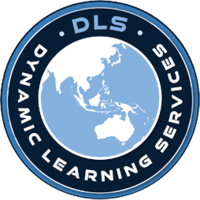
Popular courses in Rockhampton
Advanced Diploma of Civil and Structural Engineering (Materials Testing)
- There are no mandated entry requirements.
 Engineering Institute of Technology
Engineering Institute of Technology
Diploma of Laboratory Technology
- There are no mandated entry requirements.
 ABC Training and Consulting
ABC Training and Consulting
Certificate IV in Food Science and Technology
- There are no mandated entry requirements.
 Pivotal Education
Pivotal Education
Certificate II in Sampling and Measurement
- There are no mandated entry requirements.



Certificate IV in Food Processing
- There are no mandated entry requirements.
 Dynamic Learning Services
Dynamic Learning Services
Certificate I in Food Processing
- There are no mandated entry requirements.
 Australian Food Training Centre
Australian Food Training Centre
Undergraduate Certificate in Science
- There are no mandated entry requirements.
 Charles Sturt University
Charles Sturt University
Bachelor of Food Science and Nutrition
- There are no mandated entry requirements.
 Charles Sturt University
Charles Sturt University
Bachelor of Food and Nutrition
- There are no mandated entry requirements.
 Federation University
Federation University
Advanced Diploma of Laboratory Management
- Completed Diploma (AQF Level 5) or above in a science, technology, engineering or mathematics (STEM) discipline OR
- Completed Diploma of Laboratory Technology or equivalent qualifications OR
- Evidence of relevant skills, knowledge and employment experience
 ABC Training and Consulting
ABC Training and Consulting
Frequently Asked Questions
Yes, there are course providers who offer 10 qualification(s) in Rockhampton. Find a course provider near you. Once you make an enquiry, a course advisor will get in touch to discuss your study options and course fees.
Written by Courses.com.au Team
There are several campuses within the Rockhampton area that provide food science training. The closest campus is 486km away from the center of Rockhampton. You can also study a food science course through online, distance or traineeship learning. Find a course provider that best suits your needs.
Written by Courses.com.au Team
Potential job roles within food science includes laboratory attendant, laboratory technician or food tester (to name a few). Browse related occupations to find a career that suits your needs.
Written by Courses.com.au Team
Further reading


Certificate III in Pathology Collection: Everything You Need to Know
10th February 2025)
